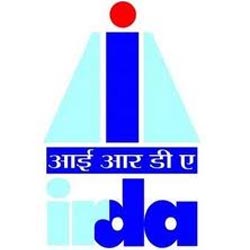IRDA has told life insurers that major regulatory changes have already happened. In 2011, the changes would be fewer
 Mumbai: The Insurance Regulatory and Development Authority (IRDA) has assured life insurers that it will go slow in bringing about regulatory changes from next year (2011), according to a report by the Press Trust of India (PTI) which was carried by Business Standard newspaper.
Mumbai: The Insurance Regulatory and Development Authority (IRDA) has assured life insurers that it will go slow in bringing about regulatory changes from next year (2011), according to a report by the Press Trust of India (PTI) which was carried by Business Standard newspaper.
The assurance was given when life insurers approached the regulator with a request to not hasten with changes in regulations. The life insurance companies had told IRDA that changes in regulations at an accelerated pace was hurting their business, the report said quoting unidentified sources.
The mutual fund industry too is going through a similar situation as a result of a string of regulatory changes in the last one-and-a-half year. The biggest was the abolition of entry load on investments in mutual fund schemes and a blanket ban on launch of a scheme which is similar to an existing one managed by the same fund house.
After SEBI caused a ruckus by arguing that ULIPs were more of investment products and less of insurance plans, IRDA had brought about changes in these products which were earlier directly competing with mutual fund schemes.
IRDA had from July 1, 2010, made ULIPs long term products with a lock-in period of 5 years against 3 years earlier. The commissions paid on ULIPs were also drastically reduced as part of the exercise to reform ULIP products. The other changes in regulations related to minimum sum assured, online selling of life policies online and giving customers an option to purchase life insurance policies without the help of an agent.
The report quoting sources said IRDA has conveyed to life insurers that most of the big regulatory changes have already been done and hence, the changes in 2011 won’t be much.
Despite the significant regulatory changes in 2010, life insurance industry continues to grow at a robust pace. The insurance premium collected by life insurers during April-October 2010 was Rs 69,706 crore, up 49 per cent from Rs 46,689 crore a year earlier.
In contrast, the mutual fund industry is experiencing net outflows. Also, some small distributors have stopped selling mutual funds after the end of entry loads from August 1, 2009. This has resulted in small investors not finding distributors willing to service them.
According to independent financial advisors (IFAs), generous investors pay 0.5-1 per cent as fee for selling a mutual fund scheme. If the investor makes an investment of Rs 50,000, the distributor gets just around Rs 250 (at 0.5%) as commission.
Mutual funds are now paying upfront commission from their own revenues as this expense is not allowed to be charged to individual schemes. In 2009-10, top mutual funds reported a substantial increase in profits but it was largely because of increase in asset valuations.




